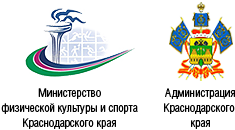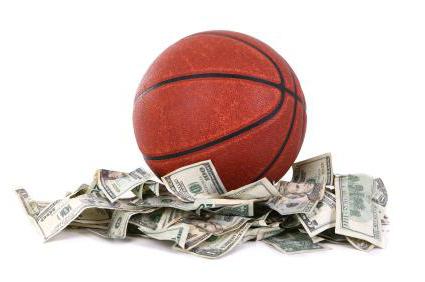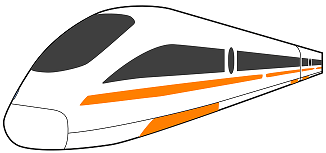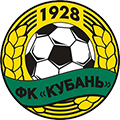Сборная Болгарии по футболу. Футбол болгария сборная
Сборная Болгарии по футболу: статистика, состав, лучшие матчи
Сборная Болгарии – не самая сильная европейская команда. Но в ее истории был период, когда футболисты этой страны, если и не вошли в элиту мирового футбола, то очень близко к ней приблизились.
История сборной Болгарии по футболу
- Участие в финальной стадии чемпионатов мира: 7 раз.
- Участие в финальной стадии чемпионатов Европы: 2 раза.
Достижения сборной Болгарии
- Полуфиналист чемпионата мира 1994 года.
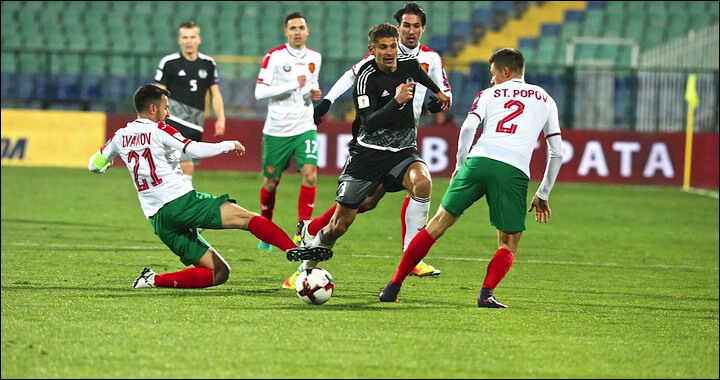
Футбольная сборная появилась в Болгарии в начале 20-х годов прошлого столетия. Свой первый матч команда провела 21 мая 1924 года, безоговорочно уступив в Вене австрийцам 0:6.
Сборная Болгарии на чемпионатах мира
Долгое время сборная Болгарии оставалась вне мировых первенств. Впервые болгары квалифицировались на чемпионат мира 1962 года. Тогда они набрали одинаковое количество очков со сборной Франции – третьим призером прошлого мирового первенства, и в дополнительном матче на «Сан-Сиро» одержали победу со счетом 1:0.
В финальной части сборная Болгарии уступила 0:1 аргентинцам, затем была крупно бита соседями по соцлагерю венграми 1:6, а в третьем туре сумела сыграть 0:0 со сборной Англии, чуть было не поставив англичанам подножку на пути в плэй-офф.
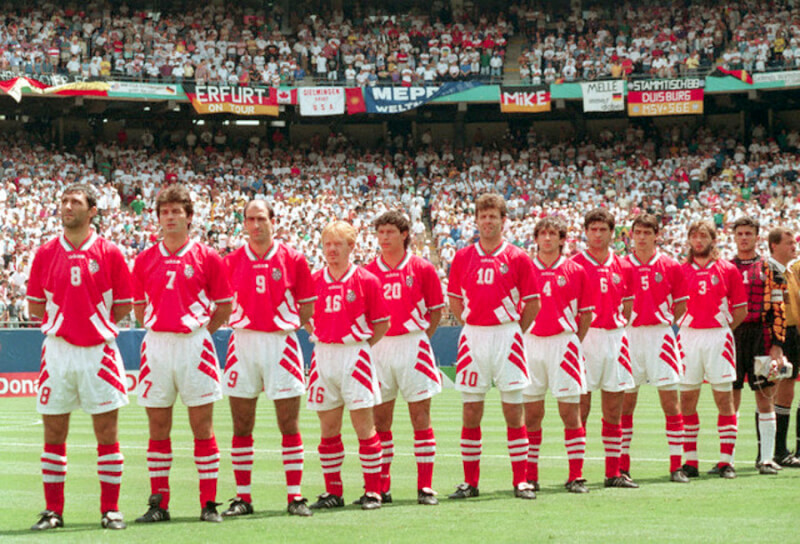
В дальнейшем болгары, наловчившиеся преодолевать отборочный барьер, квалифицируются на три чемпионата мира подряд, но ни разу не могут решить задачу попадания в четвертьфинал. В шести матчах турниров 1966 и 1970 годов они терпят пять поражений при одной ничьей.
И только на чемпионате мира 1974 года у сборной Болгарии были гипотетические шансы на попадание во второй этап. Тогда болгары сумели в первых двух матчах сыграть вничью со сборными Швеции и Уругвая, а в последнем тур им противостояли вице-чемпионы мира голландцы. Оранжевая команда никаких шансов балканской сборной оставила, крупно победив 4:1.
Пропустив два мундиаля подряд, в 1986 году болгары наконец-то смогли преодолеть группой этап. Правда, свою роль сыграло расширение числа участников чемпионата до 24 команд. Набрав всего два очка, сборная Болгарии с третьего места проскочила в 1/8 финала, где уступила хозяевам – футболистам сборной Мексики.
А еще через восемь лет сборная Болгарии добилась наивысшего успеха в свой истории, став четвертой командой планеты. В ту пору в стране выросло замечательное поколение футболистов во главе со звездой «Барселоны» Христо Стоичковым.
Но даже эта команда могла остаться за бортом чемпионата мира. Болгарам помогли французы – они дома уступили Израилю, чем дали шанс команде Болгарии. 17 ноября 1993 года болгары благодарю дублю нападающего «Порту» Эмила Костадинова победили на «Парк де Пренс» 2:1, причем второй гол был забит уже в добавленное время, когда болельщики свистели и требовали закончить встречу (Францию тогда устраивала ничья).
В США болгары начали с крупного поражения от сборной Нигерии 0:3, о затем разгромили греков и победили сборную Аргентины, деморализованную дисквалификаций своего лидера Диего Марадоны.
В 1/8 финала болгары взяли реванш у сборной Мексики, победив ее в серии пенальти, а затем в четвертьфинале обыграли действующих чемпионов мира немцев, причем сделали это, уступая в счете.
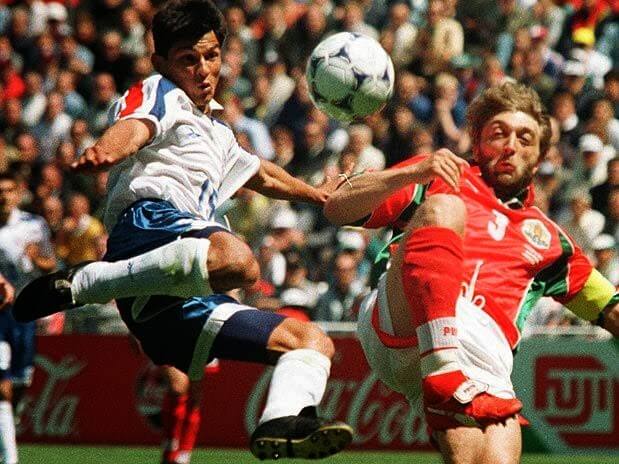
И только в полуфинале сборная Болгарии была остановлено итальянцами, у которых тогда блистал великолепный Роберто Баджо. Закончили турнир болгары крупным поражением от сборной Швеции в матче за 3-е место, но это уже особо никого не волновало.
Пробившись на свой пока последний чемпионат мира в 1998 году, сборная Болгарии набрала том всего очко – в первом матче против Парагвая, уступив Нигерии 0:1 и крупно – сборной Испании 1:6. «Золотое поколение» уже сходило с авансцены – закончил играть автор победного гола Германии Йордан Лечков, перешагнувшие 30-летний рубеж Стоичков и Костадинов доигрывали в софийском ЦСКА.
А после их ухода сборная вот уже два десятилетия не может пробиться на мировые первенства.
Сборная Болгарии на чемпионатах Европы
На Евро болгары впервые попали в 1996 году – это было то самое «золотое поколение». Несмотря на то, что на полях Англии сборная Болгарии не смогла выйти из группы, выступила он вполне достойно, сумев обыграть румын и взять очко у испанцев. Только поражение в последнем туре от сборной Франции не позволило им попасть в плэй-офф турнира.
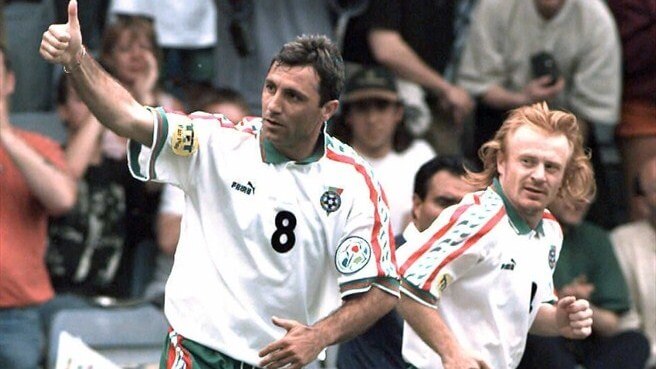
А вот на втором, и пока последнем для себя европейском первенстве 2004 года сборная Болгарии потерпела три поражения с разницей мячей 1-9. Впрочем, нынешняя сборная не может решить и задачи попадания в финальный турнир.
Даже после расширения числа участников Евро болгары не смогли пробиться в финальную часть.
Игроки сборной Болгарии по футболу
Рекордсмены по числу проведенных матчей
- Стилян Петров– 106 игр.
- Борислав Михайлов – 102.
- Христо Бонев – 96.
- Красимир Балаков – 92.
- Мартин Петров и Димитр Пенев – по 90.
Лучшие бомбардиры сборной Болгарии

- Димитр Бербатов - 48 голов.
- Христо Бонев – 47.
- Христо Стоичков – 37.
- Эмил Костадинов – 26.
- Петар Жеков и Иван Колев – по 25.
Состав сборной Болгарии по футболу
В нынешнем составе сборной Болгарии не много игроков не то что экстра-класс, но даже более-менее приемлемого уровня. Российские болельщики могут назвать Георгия Миланова из ЦСКА, да Ивелина Попова из московского «Спартака», который и является капитаном национальной команды.
Тренер сборной Болгарии по футболу
Тренирует сборную Петар Хубчев – представитель того самого «золотого поколения». Он выступал на позиции защитника и на чемпионате мира 1994 года провел за болгар все семь матчей.
В качестве главного тренера работал с болгарскими клубами, а так же во второй бундеслиге, но, впрочем, без особого успеха.
Эмблема сборной Болгарии
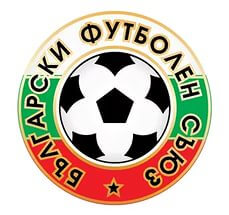
Настоящее время
После проведения жеребьевки отборочного турнира чемпионата мира 2018 года стало ясно, что болгарам придется туго – в соперники им достались сборные Франции, Голландии и Швеции. Пусть две последние команды и переживают не лучшие времена, но все же смотрятся посильнее балканской сборной.
Начало отбора это подтверждает – добыв две минимальные победы над Белоруссией и Люксембургом, болгары крупно уступили в гостях французам и шведам. Так что в России мы их вряд ли увидим.
football-pitch.ru
Сборная Болгарии | Футбол | FANDOM powered by Wikia
Национальная сборная Болгарии по футболу представляет Болгарию в международных турнирах и встречах.
Наивысшее достижение сборной - выигрыш Чемпионатов Мира 12 и 14 сезонов.

Пять последних матчей  Править
Править
| 3515 | «Ла Фаворита», Палермо (н) |  Босния и Герцеговина Босния и Герцеговина | 3:0 | ЧМ | Станков, Шекуларац, Трендафилов |
| 3517 | «Стадио Турси», Мартина Франко (н) |  Кот-Дивуар Кот-Дивуар | 3:1 | ЧМ | Шекуларац, Л. Пенев, В. Пенев |
| 3518 | «Бруно Речиони», Фермо (н) |   Бразилия Бразилия | 3:2 | ЧМ | Л. Пенев, Бранеков, Бербатов |
| 3521 | «Стадио Турси», Мартина Франко (н) |   Норвегия Норвегия | 2:0 | ЧМ | Бербатов, Л. Пенев |
| 3524 | «Луиджи Феррарис», Генуя (н) |   Украина Украина | 1:0 | ЧМ | В. Пенев |
- первым указано число голов, забитых сборной Болгарии
- д = дома
- г = в гостях
- н = на нейтральном поле
- ЧМ = Чемпионат Мир 14 сезона
Тренеры сборной  Править
Править
В сезоны без тренера сборной Болгарии руководил президент Федерации Болгарии.
Отмена Сохранить
russianfootball.wikia.com
Сборная Болгарии по футболу на чемпионате мира 1994 года
17 ноября 1993 года. Переполненный «Парк де пренс» гудит как растревоженный улей. Французы недовольны тем, что судья не дает финальный свисток, и требуют закончить матч. В последней встрече отборочного турнира к чемпионату мира 1994 года в группе G сборная Франции играет с Болгарией 1:1 и завоевывает путевку в финальную часть мундиаля.
Но что это? Следует последняя атака болгар и невероятный по силе и точности удар наносит Эмил Костадинов. Гол!!! Болгары устраивают на поле кучу мала, стадион ошарашено замолкает. Так Франция пропускает второй подряд чемпионат мира и целое поколение выдающихся французских мастеров во главе с Эриком Кантона так никогда и не сыграет на главном футбольном турнире.
Но мой рассказ о команде Болгарии, команде небольшой и не самой футбольной страны, которая на целый месяц заставила своих болельщиков поверить в чудо.
Сборная Болгарии на чемпионате мира 1994 года
Состав сборной Болгарии
На шестой свой чемпионат мира Болгария привезла достаточно сильную сборную. Вратарь Борислав Михайлов не был топовым голкипером, но всегда отличался надежностью, по крайней мере, он брал те мячи, что был обязан брать голкипер уровня национальной сборной, участвующий в финальной стадии чемпионата мира.
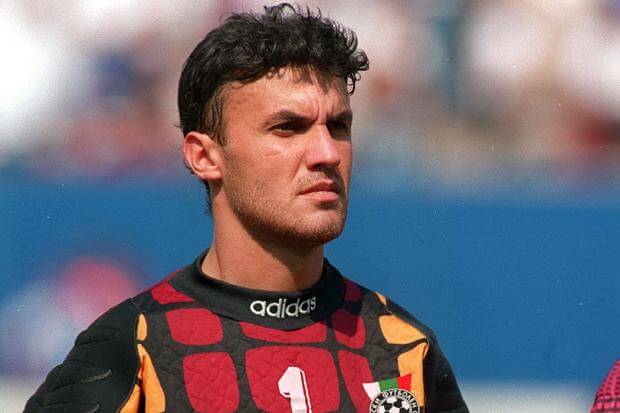
Оборону цементировали достаточно цепкие и надежные Трифан Иванов, Илиян Киряков, Петар Хубчев. Последний после мундиаля пойдет на «повышение» - из болгарского чемпионата переедет в бундеслигу, подписав контракт с «Гамбургом».
Средняя линия и атака имели ряд достаточно сильных исполнителей: Красимир Балаков, Йордан Лечков, уже упоминавшийся Костадинов. Ну, а главная звезда и лидер болгарской команды – Христо Стоичков в дополнительных представлениях не нуждается. В то время он выступал за «Барселону» и являлся одним из сильнейших нападающих мира.
Матчи группового этапа
При всем этом болгары не являлись фаворитами группы. Причиной тому были соперники. Это традиционный фаворит сборная Аргентины с ее фантастической атакой: Каниджа, Бальбоа, Батистута, Марадона; сборная Нигерии, которая хотя и не была фаворитом турнира, но обладала внушительным составом – европейским болельщикам прекрасно были известны имена Тарибо Уэста, Нвако Кану, Рашиди Йекини, Даниэля Амокачи, Эммануэля Амунике, Финиди Джорджа, Виктора Икпебы, Джей-Джей Окочи.
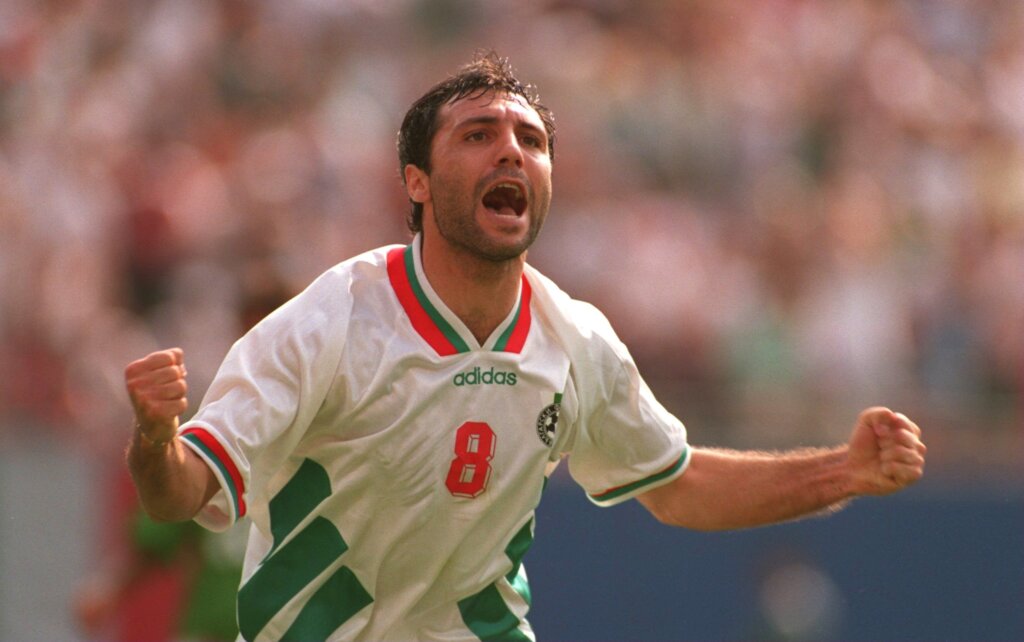
Достаточно сказать, что впервые в истории чемпионатов мира, африканская команда рассматривалась в качестве реального претендента на выход и ее последующая победа в группе не была расценена как сенсация.
Уже в первом матче болгарские игроки на себе ощутили всю силу нигерийской сборной, пропустив три безответных мяча. На следующую игру болгары выходили без права на ошибку, как и их соперники – сборная Греции, которая тоже начала турнир с крупного поражения. Впрочем, это был больше, чем просто футбол – у соседей по балканскому полуострову всегда были не самые лучшие отношения. Два реализованных Стоичковым пенальти, а так же голы Лечкова и Боримирова принесли болгарам победу.
В следующем матче обоих соперников устраивала ничья – аргентинцам ее было достаточно для того, что бы занять первое место в группе, а Болгария в таком случае была бы третьей с 4 очками, чего было бы достаточно для выхода в 1/8 финала.

Однако болгары сумели прыгнуть выше головы и победили 2:0, заняв второе место в группе. Первый на турнире гол с игры забил Стоичков, в добавленное время отличился Сираков. Справедливости ради отметим, что аргентинские игроки вышли на поле не в лучшем психологическом состоянии из-за дисквалификации Марадоны.
Стадия плей-офф
В первом раунде плэй-офф болгарам противостояла организованная и неуступчивая сборная Мексики. Уже к 20-й минуте первого тайма команды обменялись голами – у болгар вновь отличился Стоичков. После этого игроки обеих команд, как бы испугавшись собственной прыти, стали чрезмерно осторожничать и «засушили» игру.
Впрочем, их можно понять, ведь попадание в восьмерку лучших команд мира для каждой из этих сборных было бы выдающимся результатом. Серию после матчевых пенальти, по сути, выиграл голкипер Михайлов – после двух первых не реализованных одиннадцатиметровых (по одному с каждой стороны), он подряд отразил удары Берналя и Хорхе Родригеса. Полевые игроки болгар больше не промахивались. 3:1.
Матч ¼ финала против команды Германии стал лучшим для сборной Болгарии на этом турнире. Действующие чемпионы мира открыли счет в начале второго тайма – Маттеус реализовал пенальти. Этот гол сыграл c немцами злую шутку – видимо поняв, что терять им действительно нечего болгары заиграли быстро, изобретательно, вдохновлено.
Три минуты того матча: с 76-й о 79-ю навсегда вошли в истории болгарского футбола, именно тогда Стоичков и Лечков, забив по мячу, обеспечили сенсационный выход сборной Болгарии в полуфинал чемпионата мира.
Оставшиеся две встречи болгары проиграли: полуфинал Италии 1:2 и матч за 3-е место Швеции 0:4. Наблюдая за игрой Италия-Болгария, я невольно ловил себя на мысли, что болгарам чего-то не хватает. Команда двигалась, бежала, боролась, но во всем этом чувствовалось какая-то обреченность, неверие в собственные силы. Уж слишком много эмоций выплеснули болгарские футболисты в победном матче с немцами.
С тех пор болгарский футбол вот уже двадцать лет не знает подобных успехов. То поколение болгарских футболистов сумело, как бы по инерции попасть на еще два крупных турнира: Евро-1996 и чемпионат мира 1998 года, где Болгария в обоих случаях не смогла выйти из группы. И до сих пор отборочный барьер остается камнем преткновения для футболистов этой страны.
football-pitch.ru
Сборная Болгария по футболу - актуальный состав 2018, список игроков
1 008
777
765
210
111
98
47
14
13
13
12
11
10
7
2
2
2
1
1
1
1
1
1
1
1
1
1
1
1
1
1
0
0
0
0
0
0
0
0
0
0
0
0
0
0
0
0
0
0
0
www.footballtop.ru
Сборная Болгарии по футболу - WikiVisually
1. УЕФА – The Union of European Football Associations is the administrative body for association football in Europe, although several member states are primarily or entirely located in Asia. It is one of six continental confederations of world footballs governing body FIFA, UEFA consists of 55 national association members. Until 1959 the main headquarters were located in Paris, and later in Bern, in 1995, UEFA headquarters were transferred to Nyon, Switzerland. Henri Delaunay was the first general secretary and Ebbe Schwartz the first president, UEFA was founded on 15 June 1954 in Basel, Switzerland after consultation between the Italian, French, and Belgian associations. The European football union began with 25 members, that number doubled by the early 1990s, UEFA membership coincides for the most part with recognition as a sovereign country in Europe, although there are some exceptions. Some UEFA members are not sovereign states, but form part of a recognized sovereign state in the context of international law. Some UEFA members are transcontinental states, countries which had been members of the Asian Football Confederation were also admitted to the European football association, particularly Israel and Kazakhstan. Additionally some UEFA member associations allow teams from outside their associations main territory to take part in their domestic competition, saarland Football Union 1954–1956 German football association of the German Democratic Republic 1954–1990 Football Federation of the Soviet Union 1954–1991, in 1992 became Russian Football Union. The newly independent 14 Soviet Republics created their own football associations, Football Association of Yugoslavia 1954–1992, became Football Association of Serbia and Montenegro. Bosnia and Herzegovina, Croatia, Macedonia and Slovenia became independent, Football Association of Serbia and Montenegro 1992–2006, became Football Association of Serbia. Montenegro, which became independent, created its own football association, the main competition for mens national teams is the UEFA European Football Championship, started in 1958, with the first finals in 1960, and known as the European Nations Cup until 1964. It is also called UEFA or the EURO, UEFA also runs national competitions at Under-21, Under-19 and Under-17 levels. For womens national teams, UEFA operates the UEFA Womens Championship for senior sides as well as Womens Under-19. UEFA also organized the UEFA-CAF Meridian Cup with CAF for youth teams in an effort to boost youth football, UEFA launched the UEFA Regions Cup, for semi-professional teams representing their local region, in 1999. In futsal there is the UEFA Futsal Championship and UEFA Futsal Under-21 Championship, the Italian, German, Spanish and French mens national teams are the sole teams to have won the European football championship in all categories. A second, lower-ranked competition is the UEFA Europa League and this competition, for national knockout cup winners and high-placed league teams, was launched by UEFA in 1971 as a successor of both the former UEFA Cup and the Inter-Cities Fairs Cup. A third competition, the UEFA Cup Winners Cup, which had started in 1960, was absorbed into the UEFA Cup in 1999, in womens football UEFA also conducts the UEFA Womens Champions League for club teams. The competition was first held in 2001, and known as the UEFA Womens Cup until 2009, the UEFA Super Cup pits the winners of the Champions League against the winners of the Europa League, and came into being in 1973
2. Болгарский футбольный союз – The Bulgarian Football Union is a football association based in Bulgaria and a member of UEFA. It organizes a football league, Bulgarian A Professional Football Group, a legal entity that it claims descent from was founded in 1923 as the football department of the Bulgarian National Sports Federation, which existed until the Soviet invasion of 1944. On 27 June 1985, the organization was renamed to the Bulgarian Football Union, official website Bulgaria at FIFA site Bulgaria at UEFA site
3. Попов, Ивелин – Ivelin Ivanov Popov is a Bulgarian footballer playing for Russian Premier League side Spartak Moscow and the Bulgaria national football team as an all-round attacking midfielder. Born in Sofia, Popov started to play football in Septemvri Sofias academy, in 2005, he trained for four months with Feyenoord but did not sign with the team because he was not 18 years old. In September 2005, he returned to Bulgaria and played in a tournament for Beroes youth team, Popov signed his first professional contract with Litex Lovech in December 2005. The result of the match was a 1–1 draw, on 9 April 2006 he scored his first goal in professional football against Lokomotiv Sofia. The result of the match was a 3–1 win for Litex, the same season, Popov played in 11 matches and scored five goals. In two consecutive seasons, Popov was third placed in the voting for Young player of the award in 2005–06. In 2007/08 UEFA Cup, Popov scored a brace, in a first leg of second round, eventually, Litex Lovech advanced to the next round, losing to Hamburg in twos leg. On 18 September 2008, Popov scored a goal in the first round of the UEFA Cup against Aston Villa, in July 2009, Popov was given the captains armband. At the end of the season, Popov was awarded A Leagues player of the season after having the most votes in the poll, in August 2010, he went on trial to Premier League club Blackburn Rovers. He impressed the club, whereafter he received a contract offer, on 25 August 2012, Popov joined Russian Premier League club Kuban Krasnodar on a three-year contract for an undisclosed fee. According to Chempionat. com, the fee was worth 2 million and he made his debut for the club, coming on as a substitute for Marcos Pizzelli, in a 2-1 win over Dynamo Moscow on 2 September 2012. On 26 October 2012, Popov scored his first goal for the club in a 1-0 win over Rostov, less than a month later he scored his first brace, putting two goals past Krylia Sovetov and contributing with an assist in a 4-1 home victory. On 13 April 2013, Popov scored an equalizer in a 2-2 draw away from home to Terek Grozny. On 4 May, he scored a brace as Kuban beat Rostov 2-0 away from home on and he finished the season with 9 goals as the clubs top goalscorer together with Aras Özbiliz. Because of his performance in the 2012–13 season, Popov was appointed as captain of Kuban Krasnodar for the 2013-2014 season. He captained his team to its first away victory of the season over Russian Premier League newcomer, Tom Tomsk, the match ended with a 1-2 score. His first brace came shortly after, in a historical first ever match in a European championship for Kuban and he netted 2 goals in a 0-2 away victory over Scottish Premier League runners-up Motherwell in the first leg of a qualifying match for the UEFA Europa League. Both goals were assisted by team-mate Ibrahima Baldé and this resulted in his jersey being displayed in the National football museum
4. Петров, Стилиян – Stiliyan Alyoshev Petrov is a former Bulgarian professional footballer who played as a midfielder. Petrov joined Celtic from CSKA Sofia in 1999, and won ten trophies in his time at Celtic Park, in 2006, he moved to Aston Villa in the Premier League, along with his former manager Martin ONeill. Petrov became club captain at Villa Park, and was an inductee to the Aston Villa Hall of Fame in 2013, in addition he is Bulgarias all-time most-capped player with 105 appearances for the side. In March 2012, Petrov was diagnosed with leukaemia, suspending his football career to have treatment which was ultimately successful. He announced his retirement from the game in May 2013, during the summer of 2016, Petrov trained with former club Aston Villa. He played during pre-season matches but was not offered a contract by manager Roberto Di Matteo. Born in Montana, Petrov started to play football in the local team PFC Montana, at the age of 18 he was spotted by legendary scout and coach Dimitar Penev and signed with CSKA Sofia for fee of €30,000. With his new club, he won the Bulgarian Championship in 1997, Petrov was signed in the summer of 1999 by John Barnes for a fee of £2.8 million. The teenager featured prominently in a season where he won the League Cup with Celtic, his second major honour, despite the happy end to the season Petrov had a very hard time starting with the club. He was homesick and lonely at the start, and could not speak English and this was made worse by the manager playing him out of position at right back. Eventually, he improved his English by working in a burger van. This hard work and determination to fit in showed in his performances for the club and he also became the first foreign player to win the SPFA Young Player of the Year award. The 2001–02 season was the year when he came into form at Celtic becoming the dynamic, hardworking box-to-box midfielder that Celtic badly needed. This was his highest ever goalscoring season, netting 14 in 50 appearances and he also got to the only European final of his career getting a runners up medal in the Uefa Cup despite not winning anything else. In his next two seasons for Celtic he continued to be a player making 105 appearances and scoring 19 goals. He won the Scottish Cup twice in this time along with his third SPL medal, the 04/05 season was also a good year for Petrov personally as he became the third player to win the Celtic Player of The Year award. The 2005–06 season was a time of change for Celtic. Martin ONeill the clubs most successful manager in 20 years left, things started badly for Celtic as they lost 5–0 to Slovakian minnows Artmedia Bratislava in Strachans first match
5. Бербатов, Димитр – Dimitar Ivanov Berbatov is a Bulgarian professional footballer who is currently a free agent. A striker, he captained the Bulgaria national team from 2006 to 2010 and he has also won the Bulgarian Footballer of the Year a record seven times, surpassing the number of wins by Hristo Stoichkov. Born in Blagoevgrad, Berbatov started out with his home-town club Pirin before joining CSKA Sofia as a 17-year-old in 1998, after five-and-a-half years with Leverkusen, he joined English club Tottenham Hotspur in July 2006, where he spent two years before moving to Manchester United. He played in his second Champions League final in 2009, during his sides 2–0 defeat against Barcelona. After four seasons with United, during which time he won two Premier League titles in 2008–09 and 2010–11, as well as the Premier League Golden Boot in 2010–11 and he had later spells in France with Monaco, and Greece with PAOK. His favoured team was the Italian club Milan, and he modelled himself after Marco van Basten. Berbatovs mother later spoke of her sons teenage dream of playing for Newcastle United, Berbatov began his youth career with his home-town club, Pirin, where his talent was spotted and he scored 77 goals for their reserve team in 92 appearances. Berbatov joined the squad of his fathers former club, CSKA Sofia, after being spotted by scout. He signed his first professional contract with the club and made his debut during the 1998–99 season and he won the Bulgarian Cup with CSKA at the end of that season. Berbatov nearly signed for Italian Serie A side Lecce in June 2000, Berbatov played for the clubs reserve team in the Oberliga Nordrhein at first, and scored six goals in seven appearances before being promoted to the first team. He made his debut in a 4–3 pre-season friendly win against D. C. His league debut for the first team came on 10 February 2001, in the final itself, against Real Madrid, Berbatov came on as a substitute for Thomas Brdarić after 38 minutes before Leverkusen lost 2–1. Leverkusen also finished as runners-up in the Bundesliga behind Borussia Dortmund, during this time, he was linked with numerous foreign clubs, including Celtic, Atlético Madrid and Liverpool. Tottenham Hotspur reached an agreement with Bayer Leverkusen for Berbatovs transfer in May 2006, after he was granted a British work permit, the transfer was completed on 1 July 2006. He made a total of eight appearances, scoring seven goals as Tottenham were eliminated 3–4 on aggregate against Sevilla, however, he took a while to adapt to the Premier League, taking a few months to regain the league form he had shown at Leverkusen. He gave a performance against Wigan Athletic in November 2006, scoring one. He scored his first FA Cup goals on 18 February 2007 when he came on as a substitute in a 4–0 win over Fulham. Berbatov scored his first Premier League hat-trick on 29 December 2007 and his first cup final for Tottenham came on 24 February 2008 in the Football League Cup, Spurs faced Chelsea at Wembley Stadium
6. Рейтинг сборных ФИФА – The rankings were introduced in December 1992, and eight teams have held the top position, of which Brazil have spent longest ranked first. A points system is used, with points being awarded based on the results of all FIFA-recognised full international matches, the ranking system was most recently revamped after the 2006 World Cup, with the first edition of the new series of rankings issued on 12 July 2006. The most significant change is that the rankings are now based on results over the four years instead of the previous eight years. Alternative systems have been devised, such as the World Football Elo Ratings, based on the Elo rating system used in chess and Go, ranking teams. In December 1992, FIFA first published a listing in order of its member associations to provide a basis for comparison of the relative strengths of these teams. From the following August, this list was more frequently updated, significant changes were implemented in January 1999 and again in July 2006, as a reaction to criticisms of the system. Membership of FIFA has expanded from 167 to 209 since the rankings began, the ranking formula used from August 1993 until December 1998 was very simplistic and quickly became noticed for its lack of supporting factors. When the rankings were introduced, a team received one point for a draw or three for a victory in FIFA-recognised matches – much the same as a traditional league scoring system. This was a simplistic approach, however, and FIFA quickly realised that there were many factors affecting international matches. In order to meet the objective of fairly and accurately comparing the strengths of various national sides. In January 1999, FIFA introduced a system of ranking calculation. For the ranking all matches, their scores and importance were all recorded, only matches for the senior mens national team were included. Separate ranking systems were used for other national sides such as womens and junior teams. The womens rankings were, and still are, based on a procedure which is a version of the Football Elo Ratings. FIFA announced that the system would be updated following the 2006 World Cup. The evaluation period was cut from eight to four years, goals scored and home or away advantage are no longer taken into account, and other aspects of the calculations, including the importance attributed to different types of match, have been revised. The first set of revised rankings and the methodology were announced on 12 July 2006. This change is rooted at least in part in widespread criticism of the ranking system
7. Сборная Австрии по футболу – The Austria national football team is the association football team that represents the country of Austria in international competition and is controlled by the Austrian Football Association. Austria has qualified for seven World Cups, most recently in 1998, the country played in the European Championship for the first time in 2008 when it co-hosted the event with Switzerland and most recently qualified in 2016. The Austrian Football Association was founded on 18 March 1904 in the Austro-Hungarian Empire, the team enjoyed success in the 1930s under coach Hugo Meisl becoming a dominant side in Europe and earning the nickname Wunderteam. The teams star was Matthias Sindelar, on 16 May 1931, they were the first continental European side to defeat Scotland. In the 1934 FIFA World Cup, Austria finished fourth after losing 1–0 to Italy in the semi-finals and they were runners-up in the 1936 Olympics, again losing to Italy 2–1, despite having been beaten in quarter-finals by Peru, following the Peruvians withdrawal. However, according to an investigation, the victory by Peru was deliberately annulled by Adolf Hitler to favour the Austrians. The team then qualified for the 1938 FIFA World Cup finals, on 28 March, FIFA was notified that the Austrian FA had been abolished, resulting in the nations withdrawal from the World Cup. Instead the German team would represent the former Austrian territory, in a later rematch, the Germans took revenge, winning 9–1. As a result, five players from Austria Wien, Rapid Wien and Vienna Wien were part of the team only managed a 1–1 draw in Round 1 against Switzerland. With Rapid Wiens forward Pesser having been sent off, and not satisfied with two others, Herberger had to alter the line-up on six positions to fulfill the 6,5 quota again, after World War II, Austria was again separated from Germany. Austrias best result came in 1954 with a team starring midfielder Ernst Ocwirk and they lost in the semi-finals 6–1 to eventual champions Germany, but finished third after beating defending champions Uruguay 3–1. This remains their best result ever, and unfortunately the last time for decades that Austria reached the end round of a major tournament, over the years, a strong yet mainly lopsided rivalry with Germany developed. At the 1958 World Cup in Sweden, the Austrian team was a disappointment, defeats to the eventual champions Brazil, the emerging Soviet Union and a draw against a weakened England prevented the team to reach the next round. Still holding to the popularity in the country, under new coach Decker again made an international sensation in the era. In front of a crowd of over 90,000 spectators, made possible by the expansion of the Prater Stadium. Due to lack of money, however, Austria decided not to participate at the 1962 World Cup in Chile, and the team fell apart. Abrupt end of Austria’s success in the postwar period eventually formed the clear 0–6 loss against Czechoslovakia in 1962, of many players. After the end of Decker era, the team was unable for a time to connect to the old successes
8. Австрия – Austria, officially the Republic of Austria, is a federal republic and a landlocked country of over 8.7 million people in Central Europe. It is bordered by the Czech Republic and Germany to the north, Hungary and Slovakia to the east, Slovenia and Italy to the south, the territory of Austria covers 83,879 km2. The terrain is mountainous, lying within the Alps, only 32% of the country is below 500 m. The majority of the population speaks local Bavarian dialects of German as their native language, other local official languages are Hungarian, Burgenland Croatian, and Slovene. The origins of modern-day Austria date back to the time of the Habsburg dynasty, from the time of the Reformation, many northern German princes, resenting the authority of the Emperor, used Protestantism as a flag of rebellion. Following Napoleons defeat, Prussia emerged as Austrias chief competitor for rule of a greater Germany, Austrias defeat by Prussia at the Battle of Königgrätz, during the Austro-Prussian War of 1866, cleared the way for Prussia to assert control over the rest of Germany. In 1867, the empire was reformed into Austria-Hungary, Austria was thus the first to go to war in the July Crisis, which would ultimately escalate into World War I. The First Austrian Republic was established in 1919, in 1938 Nazi Germany annexed Austria in the Anschluss. This lasted until the end of World War II in 1945, after which Germany was occupied by the Allies, in 1955, the Austrian State Treaty re-established Austria as a sovereign state, ending the occupation. In the same year, the Austrian Parliament created the Declaration of Neutrality which declared that the Second Austrian Republic would become permanently neutral, today, Austria is a parliamentary representative democracy comprising nine federal states. The capital and largest city, with a population exceeding 1.7 million, is Vienna, other major urban areas of Austria include Graz, Linz, Salzburg and Innsbruck. Austria is one of the richest countries in the world, with a nominal per capita GDP of $43,724, the country has developed a high standard of living and in 2014 was ranked 21st in the world for its Human Development Index. Austria has been a member of the United Nations since 1955, joined the European Union in 1995, Austria also signed the Schengen Agreement in 1995, and adopted the euro currency in 1999. The German name for Austria, Österreich, meant eastern realm in Old High German, and is cognate with the word Ostarrîchi and this word is probably a translation of Medieval Latin Marchia orientalis into a local dialect. Austria was a prefecture of Bavaria created in 976, the word Austria is a Latinisation of the German name and was first recorded in the 12th century. Accordingly, Norig would essentially mean the same as Ostarrîchi and Österreich, the Celtic name was eventually Latinised to Noricum after the Romans conquered the area that encloses most of modern-day Austria, around 15 BC. Noricum later became a Roman province in the mid-first century AD, heers hypothesis is not accepted by linguists. Settled in ancient times, the Central European land that is now Austria was occupied in pre-Roman times by various Celtic tribes, the Celtic kingdom of Noricum was later claimed by the Roman Empire and made a province
9. Сборная Ганы по футболу – The Ghana national football team represents Ghana in international association football and has done so since the 1950s. The team is nicknamed the Black Stars after the Black Star of Africa in the Flag of Ghana and it is administered by the Ghana Football Association, the governing body for football in Ghana and the oldest football association in Africa. Prior to 1957, the team played as the Gold Coast, the team has won the Africa Cup of Nations four times and has been runner-up 5 times. After going through 2005 unbeaten, the Ghana national football team won the FIFA Best Mover of the Year Award and reached the second round of the 2006 FIFA World Cup. At the 2010 FIFA World Cup in South Africa, they became only the third African team to reach the World Cup quarter-finals, and in 2014 they competed in their third consecutive World Cup. The Gold Coast Football Association was founded in 1920 then succeeded by the Ghana Football Association in 1957 and they also reached the final of the tournament in 1968 and 1970, losing 1–0 on each occasion, to DR Congo and Sudan respectively. Their domination of this tournament earned the Black Stars team the nicknames of the Black Stars of West Africa, after three failures to reach the tournament final, the 1992 African Cup of Nations saw the Black Stars finish second. In 2008, Ghana reached a ranking of 14 according to the FIFA World Rankings. The Black Stars went on to secure a 100 percent record in their campaign, winning the group. In the final tournament, the competed in Group D with Germany. Ghana reached the round of 16 where they played the United States, in 2013 Ghana became the only team in Africa to reach four consecutive semi-finals of the CAF Africa Cup of Nations twice, from 1963 and 1970 and from 2008 and 2013. Ghana was sufficiently highly ranked by FIFA to start their qualifying for the 2014 World Cup in the Second round and they won the group, and in the following round qualified for the 2014 World Cup finals in November 2013, beating Egypt 7–3 on aggregate in a two-legged play-off. Ghana was drawn in Group G for the finals, where they faced Germany, Portugal, there is no home stadium for the Black Stars. Some smaller, regional stadia were used in the 2002 Africa Cup of Nations qualifying and 2004 African Cup of Nations qualification qualifying campaigns. The black star is present on the Flag of Ghana and national coat of arms in the center of the national crest. Adopted following the independence of Ghana in 1957, the star has always been included in its kits. The Black Stars kits were sponsored by Puma SE from 2005, the Black Star kit is used instead of the original gold, green, and red coloured football kit that coordinates with the colours of the Ghana national flag. The Black Stars are sporting an all-white and partly black football kit which was worn from the years 1957 to 1989, the Ghana national football team football kit is ranked as the best conceptual artistic and designed football kit of any other football team
10. Мексика – Mexico, officially the United Mexican States, is a federal republic in the southern half of North America. It is bordered to the north by the United States, to the south and west by the Pacific Ocean, to the southeast by Guatemala, Belize, and the Caribbean Sea, and to the east by the Gulf of Mexico. Covering almost two million square kilometers, Mexico is the sixth largest country in the Americas by total area, Mexico is a federation comprising 31 states and a federal district that is also its capital and most populous city. Other metropolises include Guadalajara, Monterrey, Puebla, Toluca, Tijuana, pre-Columbian Mexico was home to many advanced Mesoamerican civilizations, such as the Olmec, Toltec, Teotihuacan, Zapotec, Maya and Aztec before first contact with Europeans. In 1521, the Spanish Empire conquered and colonized the territory from its base in Mexico-Tenochtitlan, Three centuries later, this territory became Mexico following recognition in 1821 after the colonys Mexican War of Independence. The tumultuous post-independence period was characterized by instability and many political changes. The Mexican–American War led to the cession of the extensive northern borderlands, one-third of its territory. The Pastry War, the Franco-Mexican War, a civil war, the dictatorship was overthrown in the Mexican Revolution of 1910, which culminated with the promulgation of the 1917 Constitution and the emergence of the countrys current political system. Mexico has the fifteenth largest nominal GDP and the eleventh largest by purchasing power parity, the Mexican economy is strongly linked to those of its North American Free Trade Agreement partners, especially the United States. Mexico was the first Latin American member of the Organisation for Economic Co-operation and Development and it is classified as an upper-middle income country by the World Bank and a newly industrialized country by several analysts. By 2050, Mexico could become the fifth or seventh largest economy. The country is considered both a power and middle power, and is often identified as an emerging global power. Due to its culture and history, Mexico ranks first in the Americas. Mexico is a country, ranking fourth in the world by biodiversity. In 2015 it was the 9th most visited country in the world, Mexico is a member of the United Nations, the World Trade Organization, the G8+5, the G20, the Uniting for Consensus and the Pacific Alliance. Mēxihco is the Nahuatl term for the heartland of the Aztec Empire, namely, the Valley of Mexico, and its people, the Mexica and this became the future State of Mexico as a division of New Spain prior to independence. It is generally considered to be a toponym for the valley became the primary ethnonym for the Aztec Triple Alliance as a result. After New Spain won independence from Spain, representatives decided to name the new country after its capital and this was founded in 1524 on top of the ancient Mexica capital of Mexico-Tenochtitlan
wikivisually.com

